
Deep Insights into What Determines Your Parenting Style
In this parenting article you'll get:
- A sharp definition of what is a parenting style!
- A list of different powerful factors that influence the manner in which you raise your children.
Thus you'll get to read about the importance of:
- The dominant cultural paradigm and the power of mainstream discourse!
- Socioeconomic status and demographic background!
- Your parents' style of parenting and the way they behaved towards you when you were a child.
- Your own temperaments, personality traits and Enneagram type
- Your child's unique personality and temperament!
- Your level of awareness and type of presence!
If you're curious about your own parenting style you can take either this advanced parenting quiz or this intelligent parenting test.
What Is a Parenting Style?
A Definition
A parenting style describes a certain set of behavioral, psychological, philosophical and moral strategies that parents use in their efforts of raising their child. Sometime these strategies are very conscious, have been critically examined and specifically chosen.
However, most often a parent's way of parenting is not a conscious choice but rather a random result of cultural imprints, personal temperament and own childhood history, just to mention a few influential factors (see 12 different styles of parenting here).
In this way most often following a certain way of parenting is not a well thought through action but rather an automated reaction.
Even though behavioral scientists and developmental psychologists have created theoretical 'boxes' that parents fit into, it's important to bear in mind that no two parents are exactly the same.
And as no two parents are alike, each parent's parenting style must per definition be unique.
Yours too!
What Determines Your Way of Parenting?
As you can imagine there are a lot of factors that influence your parenting style.For instance, merely saying that someone is a strict, authoritarian parent because he or she wasn't unconditionally loved as a child might have some elements of truth in it. However, it is too simplistic as entire cause for being a certain type of parent.
Why?
Because not all children with similar backgrounds become the same type of parents!
There are many more factors at play in the creation of a parent's style of parenting than e.g. childhood love.
Here is a list of some of the most important factors that in some way shape or form determine your way of parenting:
- Your type of adherence to the dominant cultural paradigm and mainstream discourse
- Your socioeconomic status and potentially your ethnic background
- Your parents' parenting style
- Your child's temperament and personality
- Your temperament and personality
- Your level of awareness
As you can imagine, each person has various combinations of these factors which makes determining the reason for practicing a specific style very complex.
In the following I will:
- Provide you with insightful and when possible, scientific research information about each factor.
- Tell you how science relates some of the factors to a certain ways of parenting.
1) How Cultural Paradigms and Mainstream Discourse May Influence Your Way of Parenting
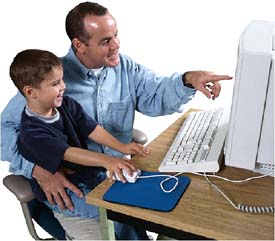
No matter how we much we might want to deny it, we're all a product of our time and the place we live.
To put it provocatively ... to some extent we're all brainwashed by our culture.
You, too!
Me, too!
All of us ... more or less!
You see, all societies have norms, values and beliefs that we have all been constantly spoon fed from the moment we were born.
We are not consciously aware of most of these values and beliefs, which make them seem like objective truths.
But they're not! They are just values and norms!
In every society some values will be placed on a golden pedestal and others will be socially condemned and frowned upon.
In other words, if you act according to certain highly esteemed social values, you will be deemed a success in the eyes of that particular culture.
And the other way around, if you happen to follow another path of values than the one expected by mainstream society, you might be considered an outsider.
The Cherished Values of Western Culture
For instance, in Western culture, at least in Denmark, we have very strong values of individual independence and personal freedom that pervade not only our actions and choices but also our way of talking.
In terms of parenting discourse, it is generally considered good to be both warm and sympathetic (trying understand your child as an individual) and at the same time relatively firm (so that you as a parent don't lose your personal freedom) when raising your children.
How does this parenting ideal manifest itself into discourse?

Well, bonding with your baby is considered healthy and good.
However, if you carry your baby around too much, you might be told that you risk spoiling your child, or even worse (as I was told), that you are a slave to your child.
The cultural fear behind such statements is probably of this nature:
If you bond too much with your child, your child might become too dependent on you (notice how the cultural value of independence is transmitted) and you might lose your personal freedom (a highly cherished cultural value).
Mindlessly Reproducing the Ethics of the Dominant Cultural Paradigm
People most often mean well when they 'helpfully' comment on your parenting efforts.
However, what most of them are in fact doing is mindlessly reproducing dominant cultural values of independence and freedom with little regard for your specific situation and your child's individual needs.
You see, cultural paradigms install a dominant mindset and thought pattern in people, who, without really knowing it, reproduce it when they talk and give advice.
This is what cultural paradigms do. They are so extremely powerful that most people end up walking around like cultural copying machines.
However, every time we have dominant paradigm, we will also have a counter paradigm born in a spirit of resistance and typically based on opposite values of the dominant paradigm.
Authoritative Parenting as the Dominant Parenting Paradigm
The style of parenting that your general western parenting expert will recommend is what developmental psychologist Diana Baumrind calls authoritative parenting.
Authoritative parenting is characterized by values of high behavior control (high behavior control is characterized by being relatively demanding with your children, expecting obedience, help with chores, socially accepted behavior, rules that are followed, punishments for disobedience etc.)
Authoritative parenting is also characterized by values of responsiveness (relative freedom of choice, give and take discussions, understanding, etc.)
Now, as good, reasonable and probably normal this way of parenting may sound, I happen to be somewhat critical about this dominant parenting paradigm.
Having studied Diana Baumrind's idea of authoritative parenting in depth, I find it too inflexible, situationally restrictive and rule bound.
I'm not going to go into an in-depth discussion here, but if you want to read my and other academic critiques of this parenting style you can read this article about authoritative parenting.
Just to satisfy your curiosity, I can tell you that I'm more into unconditional parenting. This way of parenting is typically misunderstood by the dominant paradigm and therefore often labelled permissive parenting. But this is also another discussion all together.
Summing up this discussion of parenting paradigms, in the West we have:
- The dominant parenting paradigm: Authoritative parenting. The 'ideal' parenting style that people want to say they practice because it represents culturally cherished values.
- Counter parenting paradigms 1): Unconditional parenting and attachment parenting and positive parenting Ways of parenting that I find ideal but which are not common practice. To some extent they are a counter reaction to the firmness and demandingness of the authoritative parenting style.
- Sub parenting paradigm 2) Authoritarian parenting. I don't think it's a reaction to the mainstream parenting philosophy as much as it is a 1950s patriarchal leftover. I don't see it much in my personal social circle but I know it still exists with some parents.
If you wish to read about the styles of parenting that have dominated western thought and practice throughout the last 100 years, you might want to read this article.
2) How Socioeconomic Status and Ethnicity May Influence Your Parenting Style
According to many research studies carried out the last 40-50 years, parents' socioeconomic status (also called SES) have been proved to play a remarkably big role when it comes to prediction of parenting style.The general conclusion from most of these studies is that the higher the socioeconomic status of the parents is, the lower their degree of parental control becomes.

Low Socioeconomic Status:
It's about Survival, Which Means More Parental Control:
The studies conducted on socioeconomic status and its influence on styles of parenting have proved that there is a definite connection between low SES and high behavior control.
However, the social scientists can't say for certain why this is!
However, they do have hypotheses.
One hypothesis is that if your socioeconomic status is low - meaning that you have no or a low level of education, a low household income, no or a low status job, various psychological and physical stress factors may be high.
For instance, parents with a low socioeconomic status may struggle with financial insecurity, live in a dangerous neighborhood and / or have low informational resources.
A natural psychological human response to stressful circumstances is exercising more control to feel in control. If you're scared and feel insecure, you will often try to be more controlling in order to feel safe.
This may be why lower socioeconomic status parents tend to be more prone to adopt the authoritarian style of parenting which, among other things, is characterized by harsh discipline, inflexible rules along with a tendency to show emotional insensitivity.
If you live under stressful circumstances, you might feel you've got to be firm, hard and restrictive in order to ensure your kids physical survival.
High socioeconomic status:
Non-stressful external circumstances often means more freedom for the child:
Whereas high-risk living often entails high parental control, low-risk living often entails low(er) parental control.
Thus parents with a higher education, a higher income and a higher status job who live in a safe neighborhood tend to be less controlling in their way of parenting.
They have a more flat family hierarchy, are more concerned with their children's emotional welfare and typically involve their children in decision making processes.
The fear factor in everyday life is low and parents feel safe letting their children make independent decisions.
What about ethnicity?
Most studies on parenting have been conducted among white middle class families.
The overall consensus and conclusion here is that authoritative parenting has been linked with most positive outcomes for children in terms of e.g. self esteem, academic performance, self assertion etc.
The least successful way of parenting measured along the same success criteria is authoritarian parenting while permissive parenting falls somewhere in between.
However, it is important to remember that what determines a success is a cultural construct (remember the discussion about cultural paradigms?).
This means that different ethnic cultures may have different values in their parenting and different goals for their children.
Therefore the measuring stick of success that has been used on white middle class families embodies values belonging to the dominant cultural paradigm. Hence, it might be all wrong to measure other societal groups with the same stick.
Hence, many studies have also shown that Asian ethnic minority families who practice something similar to authoritarian parenting (a parenting style which scored poorly to mediocre in the studies of white middle class families) apparently result in children who excel both academically and socially.
3) How Your Parents' Style of Parenting Style May Influence Your Parenting Habits
We have all been raised in a certain way that in someway shape or form influences our own ways of parenting today.However, exactly how our parents' way of parenting influences our own parenting habits is very difficult to say something conclusive about.
For instance, research studies have spotted the tendency that children of authoritarian parents tend to become authoritarian parents themselves.
However, we can't say for sure that it's because they have 'inherited' their way of parenting. Following the conclusions from the last section, we should also take socioeconomic status into account.
But I don't think there's any doubt that the manner in which we were raised plays a huge role in how we raise our own children.
There are three ways this parenting type inheritance may come about:
- Our parents way of parenting may either function as an ideal; we consciously or unconsciously identify with our parents and consequently reproduce their parenting values and techniques.
- Or our parents' way of parenting may function as a counter identification. Meaning we do not want to become our own parents and consequently we reject their parenting methods and strategies.
- Or we choose a way somewhere in between accepting and rejecting our parenting inheritance. We pick and chose that which we like and reject that which we disapprove of.
4) How Your Child's Temperament and Personality Come into the Picture
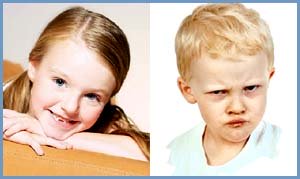
One of the most common points of critique of Diana Baumrind's study of parenting styles is that fact that she only describes how a parent's way of parenting affects the child's personality, but not how the child's personality and behavior affects a parent's way of parenting (Harris 1996 and Maccoby and Martin 1983).
This seems to be a very valid critique. It seems only logical that parents respond differently to different children.
A later study of 496 American teen girls empirically supports this conclusion (Huh et al 2006).
Interestingly and very briefly put, the study showed that problematic behavior did not result in more perceived control and support, but less.
In other words, the girls' problematic behavior resulted in parents loosening their parenting reigns over a longer period of time and becoming less controlling and supportive.
In this way the study concludes that the child's behavior affects the parents' way of parenting.
My Hypothesis:
If we have a child that has been easy and docile all his or her life and our child all of a sudden starts to exhibit what we perceive as problematic behavior, the most likely reaction we'll make will probably be to tighten our reigns and become more controlling in order to try to get our child back on the right track.
As mentioned before in a previous section in this article, fear often makes us want to control things more.
However, if our child does not respond to our stricter parenting, at some point we might give up trying to control and our parenting will be characterized by fewer rules and demands (we give up) (as Huh's study demonstrates).
One thing I would have loved to hear more about in the study would be a description of the nature of control.
Because the way that I see it, there's an important difference between being non-controlling, uninvolved and unsupportive and being non-controlling but very involved and supportive.
This question leads me to the next question:
5) How Your Temperament and Personality May Influence Your Style of Parenting
As human beings we all have what is called an ego.When I'm talking ego, I'm not referring to Sigmund Freud's structural model of the human psyche mapping out id (instinct), ego (realistic) and super-ego (moralistic).
No, my idea of ego is more consistent with the Eastern spiritual mindset which can also be seen reflected in the teachings of the Enneagram.
The Enneagram is an ancient system that describes nine personality types or nine ego types.
According to the Enneagram an ego can be described as a self-protective mechanism that uses belief systems and defence strategies to fulfil our most basic needs and protect us from harm.
The Enneagram describes how the nine universal ego personality types react in different situations.
In brief, this is what characterizes the personalities (and therefore also tendencies in ways of parenting) of the nine Enneagram types:
The Perfectionist:
High moral standards, a strong sense of detail and a clear idea of what is right and what is wrong. However, tends also be judgemental, rule-bound and mentally inflexible.
The Helper:
Warm, caring and supportive. However, tends to be self sacrificing, in need of approval and thus becomes angry if all the helping goes unappreciated and unnoticed.
The Achiever:
Charming, competitive and goal orientated. However, tends to be too focussed on how things look - external image, results and approval. Tends to view family as a project that has to excel and look good from the outside.
The Romantic:
Creative, passionate and authentic. However, tends to want the unattainable, being a drama queen and emotionally dominate people.
The Observer:
Rational, calm and objective. However, tends to be detached, emotionally withdrawn and too mental.
The Loyalist:
Responsible, protective and sceptical. However, tends to get caught in fear and thus be overprotective.
The Adventurer:
Optimistic, entertaining and visionary. However, tends to be superficial, greedy and wants to escape or be evasive when trouble or hard emotions arise.
The Leader:
Direct, loyal and charismatic. However, tends to be controlling, aggressive and has a short emotional fuse.
The Peacemaker:
Relaxed, easygoing and accepting. However, tends to be passive, procrastinating and scared of conflicts.
If you want to learn which Enneagram type you might be and get some parenting tips suited your parenting personality, you might want to take this parenting quiz for self esteem.
6) How Your Level of Awareness May Determine How You Relate to Your Kids
The more you know your ego (or Enneagram type): your strategies, your behavior pattern, your mindset, your vulnerable points, the more conscious your parenting will become.You'll start to notice how the subtleties of your mere presence and your type of energy you emit powerfully affect your child.
For instance, if I'm stressed, I unwillingly transfer my closed of, unapproachable energy to my child who sucks up this Beingness and becomes it too.
When you start paying attention to yourself, how you appear and you act, you'll see how being that which you want your child to be is the most effective parenting strategy of all.
For instance, if you want your child to be understanding, flexible and caring try being that yourself.
Don't teach it, be it!
These important insights of self awareness lie at the heart of positive parenting, attachment parenting and unconditional parenting.
I hope this article on parenting style factors was helpful for you. If you wish to read more articles on similar subjects, you can either dive into one of the links below or explore one of the buttons in the navigation bar to your left at the top of this article.
Your Positive Parenting Ally,
Birgitte

Want to stay in touch and get the latest news?
Sign up
for my free newsletter
Parent Coaching
- For Inner Peace, Clarity and a Deeper Connection to Your Child
 Being a parent can feel like a double-edged sword. Life with kids may feel like the greatest gift you have ever received, while at the same being hugely challenging, often leaving you confused, stressed and overwhelmed.
Being a parent can feel like a double-edged sword. Life with kids may feel like the greatest gift you have ever received, while at the same being hugely challenging, often leaving you confused, stressed and overwhelmed.
When we feel like this, we've lost touch with ourselves. We can't hear our own inner voice, and it's difficult to know what is 'right' for us and how to act.
I offer in-depth parent coaching to help you regain your balance and get back in touch with yourself. From a place of inner peace and clarity, your will find your own answers which will help you reconnect with your child from a place of unconditional love and acceptance.
Read more about my parent coaching here.
Where Would You Like to Go Next?
 12 Different Styles of Parenting and Child Discipline Strategies: Sharp Definitions and Deep Insights. |
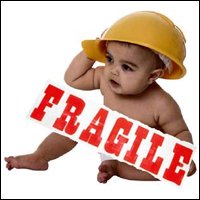 Helicopter Parents and Overprotective Parents: The Truth and Sharp Essence of the Modern Phenomenon of Overparenting. |
 Deep Insights into Narcissistic Parents: Going Behind Their Controlling Behavior and Mapping Out Its Long Term Consequences. |
 Why Well-Meaning Parents Use Controlling Behavior and Become Controlling Parents! Understanding the Essence of Control and the Common Misuse of Power. |
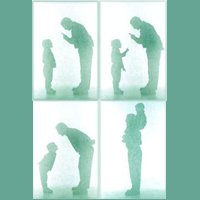 The Advanced Parenting Style Quiz to Learn Who You Are as a Mom or Dad. |
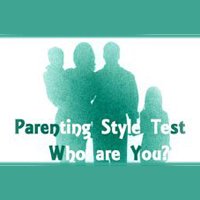 Take an Intelligent Parenting Style Test and Determine Your Parenting Style with This Free Personality Quiz for Parents. |
Back to the top of this page about Deep Insights into What Determines Your Parenting Style
Go to the Positive Parenting Ally Homepage







